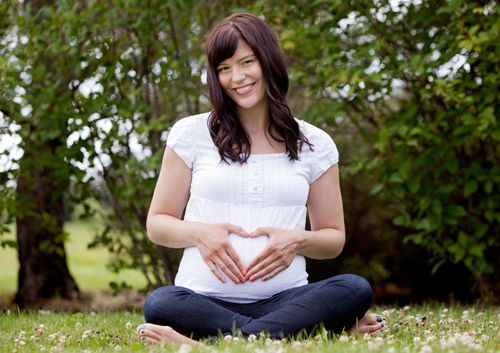May 6th, 2020

Also known as onchophagia, the habit of nail biting is one of the so-called “nervous habits” that can be triggered by stress, excitement, or boredom. Approximately half of all kids between the ages of ten and 18 have been nail biters at one time or another. Experts say that about 30 percent of children and 15 percent of adults are nail biters, however most people stop chewing their nails by the time they turn 30.
Here are four dental and general reasons to stop biting your nails:
1. It’s unsanitary: Your nails harbor bacteria and germs, and are almost twice as dirty as fingers. What’s more, swallowing dirty nails can lead to stomach problems.
2. It wears down your teeth: Gnawing your nails can put added stress on your pearly whites, which can lead to crooked teeth.
3. It can delay your orthodontic treatment: For those of our patients wearing braces, nail biting puts additional pressure on teeth and weakens roots.
4. It can cost you, literally: It has been estimated that up to $4,000 in extra dental bills can build up over a lifetime.
Drs. Mark and Nick Troilo and our team recommend the following to kick your nail biting habit:
- Keep your nails trimmed short; you’ll have less of a nail to bite.
- Coat your nails with a bitter-tasting nail polish.
- Ask us about obtaining a mouthguard, which can help prevent nail biting.
- Put a rubber band around your wrist and snap it whenever you get the urge to gnaw on your nails.
- Think about when and why you chew your nails. Whether you are nervous or just bored, understanding the triggers can help you find a solution and stop the habit.
- If you can’t stop, behavioral therapy may be an effective option to stop nail biting. Ask Drs. Mark and Nick Troilo and our team for a recommendation.
April 29th, 2020

Drs. Mark and Nick Troilo and our team at Rose Hill General & Cosmetic Dentistry will tell you that good oral health habits when you are pregnant are very important. A plaque or infectious buildup can affect the baby in gestation, and cause some unforeseen issues during birth. There are a few steps relating to oral health that can help prevent complications and other pregnancy issues. Here are a few things to consider about oral health when you are expecting.
Proper brushing
Brushing your teeth at least twice a day is essential when you are pregnant. This will peel away any buildup that you have on your teeth, and help create a shield against future buildup. Swallowing large amounts of plaque or bacterial buildup can and will affect the gestation of the fetus, and can cause certain complications.
Floss
Flossing will also help remove a lot of the buildup in your teeth that can promote infection. Make sure you floss at least once a day. Bacterial infections fester on food buildup, and certain destructive viruses can also breed and grow on these remnants.
Morning sickness
The acidity of vomit can erode the enamel on your teeth, and create buildup of damaging particulates in your teeth. If you are experiencing regular morning sickness, rinse your teeth with a mixture of baking soda and water. This will remove buildup, and alleviate some of the acidity from the vomit.
Alcohol-free, antimicrobial mouthwash
Regardless of whether you are trying to or not, you will swallow small amounts of your mouthwash. Alcohol can affect your gestating baby. Use an antimicrobial, alcohol-free mouthwash.
Visit the dentist
If you have any dental issues, please give us a call at our convenient Rose Hill, KS office away. We will be able to diagnose and treat any oral health issues immediately, and make sure they do not affect your developing child. Protecting your baby includes protecting your oral health.
April 22nd, 2020

Earth Day began in 1970 as an event to raise awareness of our environment. What began as a single day in April is now recognized around the world to bring attention and education to global environmental issues. Conserving our natural resources, reducing water and air pollution, and developing green technologies are all ways in which we can improve the environment around us.
Reduce, Recycle, and Reuse
One of the easiest ways to participate in Earth Day is by simply reducing the amount of refuse that ends up in landfills. Many communities have recycling programs for paper, plastic, and metal refuse. By keeping recyclable items out of landfills, we reduce the need for new disposal space and the amount of energy needed for burning refuse. Recycling products also helps conserve the resources that are used in making new products.
You can save money by reducing your consumption of many everyday products. Single disposable water bottles can be recycled but they are costly. By using filtered faucet water, you can conserve your financial resources. Disposable paper towels can also be wasteful. Consider reusable cleaning rags for the majority of your chores.
Reusing items saves both the environment and your finances. A large number of products can be re-purposed to create a new item. Old furniture can be remade into a new piece. Old clothing can be used for craft items. If you are not able to find ways to reuse your old items, donate them to a charity. Remember to continue your positive environmental steps on a daily basis.
Other things you can do to improve the environment
Everyone, young or old, can find ways to participate in improving the environment. Some ideas include:
- Planting trees
- Picking up litter
- Reducing energy consumption
- Walking, bicycling, or carpooling to work or school
- Disposing of hazardous waste properly
- Using rain barrels to conserve water for plants
Earth Day is designed to appreciate and celebrate the health of the earth. Keeping the earth healthy is important, but keeping your mouth healthy is important, too. Healthy teeth and gums contribute to your overall health and well-being, so remember to call our team at Rose Hill General & Cosmetic Dentistry to schedule an appointment. Have a happy and healthy Earth Day, from Drs. Mark and Nick Troilo!
April 15th, 2020

One of the most frequent questions that Drs. Mark and Nick Troilo and our team hear is about what kinds of snacks are best for a child’s dental health. Sugary snacks are inevitable sometimes, but it’s vital for you as a parent to monitor how frequently your child is eating the kinds of snacks that may give him or her a cavity or two down the line.
Unsurprisingly, the best snacks are healthy ones, though they may not always be the most appealing to your little ones. The good news is that healthy doesn’t mean you have to compromise on taste. Once your kids give these tasty snacks a go, they might become open to all things healthy!
- Fresh veggies and hummus
- Apple wedges with peanut butter
- Low-fat yogurt with berries
- Cubes of cheese and crackers
- Hard-boiled eggs with a little bit of salt and pepper
- Celery sticks with cream cheese and sunflower seeds
- A homemade milkshake with low-fat milk (or almond milk), the fruit of their choice, chia seeds, and cinnamon
- Lean proteins such as chicken breast, fish, and turkey
These snacks aren’t high in sugar but they contain all the nutrients your children need to have the necessary energy throughout the day.
This is only a sample of all the great, healthy snacks out there for your kids. For more ideas, ask us the next time you visit our Rose Hill, KS office. It’s never too early to create healthy habits; they’re not only good for oral health, but overall health too. That’s a win-win, if you ask us.








